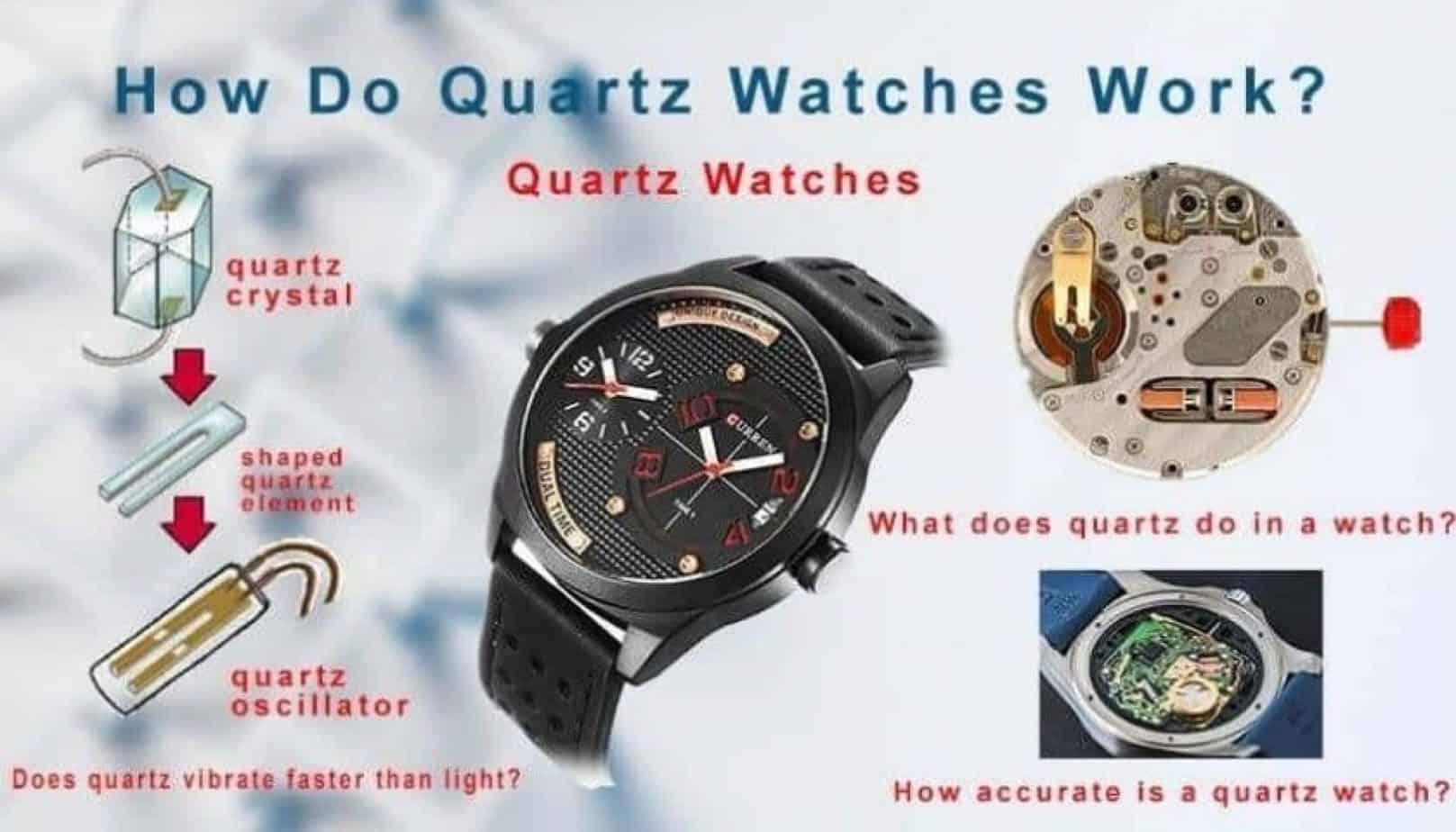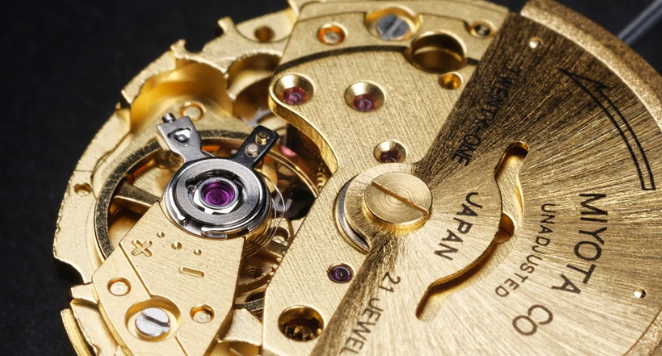The Enduring Timekeeper: A Comprehensive Look at Quartz Watches
Related Articles: The Enduring Timekeeper: A Comprehensive Look at Quartz Watches
Introduction
With great pleasure, we will explore the intriguing topic related to The Enduring Timekeeper: A Comprehensive Look at Quartz Watches. Let’s weave interesting information and offer fresh perspectives to the readers.
Table of Content
The Enduring Timekeeper: A Comprehensive Look at Quartz Watches

The world of horology is a tapestry woven with intricate designs, fascinating mechanisms, and a rich history. Within this tapestry, quartz watches stand out as a testament to innovation and practicality, having revolutionized timekeeping since their introduction in the 1960s. While mechanical watches continue to hold a prestigious place, quartz watches have secured a dominant position due to their affordability, accuracy, and durability. This article delves into the intricacies of quartz watches, exploring their core principles, evolution, and enduring relevance in the modern world.
Understanding the Quartz Crystal: The Heart of Precision
At the heart of every quartz watch lies a tiny, meticulously cut piece of quartz crystal. This seemingly simple crystal possesses a remarkable property: piezoelectricity. This phenomenon allows the crystal to vibrate at a precise frequency when an electric current is applied. These vibrations, measured in Hertz (Hz), are incredibly consistent, forming the foundation for the watch’s exceptional accuracy.
The Mechanism of Timekeeping: A Symphony of Electronic Precision
The quartz crystal’s vibrations are not directly translated into timekeeping. Instead, they trigger a complex interplay of electronic components:
- Oscillator: A circuit converts the crystal’s vibrations into a stable electrical signal.
- Divider: This circuit divides the high-frequency signal from the oscillator into a lower frequency, typically 1 Hz, corresponding to one pulse per second.
- Motor: The divided signal drives a tiny motor that rotates the watch’s hands or advances the digital display.
Accuracy and Reliability: The Hallmark of Quartz Watches
The consistent vibration of the quartz crystal, coupled with the precise electronic circuitry, results in exceptional timekeeping accuracy. Most quartz watches maintain an accuracy of +/- 15 seconds per month, a level of precision unattainable by traditional mechanical watches. This inherent accuracy, along with the robustness of the electronic components, contributes to the reliability and longevity of quartz watches.
A Journey Through Time: The Evolution of Quartz Watches
The invention of the quartz watch in the 1960s marked a pivotal moment in horology. Early models were bulky and expensive, but technological advancements rapidly led to miniaturization and affordability. The 1970s saw the emergence of digital quartz watches, offering a stark contrast to the traditional analog designs. These digital watches, with their LED and LCD displays, became synonymous with the technological revolution of the era.
The late 20th century witnessed the development of quartz watches with increased functionality. Chronographs, alarm functions, and even GPS capabilities were integrated into quartz movements, further solidifying their versatility and appeal. Today, quartz watches are available in an astonishing array of styles, materials, and features, catering to diverse tastes and needs.
Beyond Timekeeping: The Versatility of Quartz Technology
The principles of quartz technology extend far beyond timekeeping. Quartz crystals are integral to a wide range of applications, including:
- Electronics: Quartz crystals are found in computers, smartphones, radios, and countless other electronic devices, providing accurate timing for their internal processes.
- Telecommunications: Quartz oscillators ensure precise frequency control in telecommunication networks, enabling reliable signal transmission.
- Scientific Instruments: Quartz crystals play a vital role in scientific instruments like atomic clocks, which achieve unparalleled accuracy in timekeeping.
FAQs: Addressing Common Queries about Quartz Watches
1. How accurate are quartz watches?
Quartz watches are remarkably accurate, typically deviating by +/- 15 seconds per month. This level of precision surpasses that of traditional mechanical watches.
2. How long do quartz watch batteries last?
Battery life varies depending on the watch model and usage patterns. However, most quartz watches have a battery life of 1-2 years.
3. Are quartz watches more expensive than mechanical watches?
Generally, quartz watches are more affordable than mechanical watches. However, high-end quartz watches with complex features and intricate designs can command premium prices.
4. Do quartz watches need regular maintenance?
Quartz watches require less maintenance than mechanical watches. Replacing the battery every 1-2 years is the primary maintenance requirement.
5. Can quartz watches be repaired?
Yes, quartz watches can be repaired. However, the complexity of the electronic components may necessitate specialized technicians.
Tips for Choosing and Maintaining a Quartz Watch
1. Consider your needs and budget: Quartz watches are available in a wide range of styles, features, and price points. Determine your priorities and set a realistic budget.
2. Choose a reputable brand: Opt for established brands known for their quality and reliability.
3. Understand the warranty: Familiarize yourself with the warranty terms and conditions.
4. Replace the battery promptly: A depleted battery can damage the watch’s movement. Replace it as soon as you notice a decrease in accuracy or performance.
5. Handle with care: Avoid subjecting your watch to extreme temperatures, shocks, or magnetic fields.
Conclusion: The Enduring Legacy of Quartz Watches
Quartz watches have transformed timekeeping, making precise and reliable timekeeping accessible to everyone. Their affordability, accuracy, and durability have made them a popular choice for both everyday use and specialized applications. While mechanical watches continue to hold a place of prestige, quartz watches remain a testament to the ingenuity and practicality of modern horology. Their enduring legacy is a testament to their ability to seamlessly integrate into our lives, keeping us on time and connected to the rhythm of the world.








Closure
Thus, we hope this article has provided valuable insights into The Enduring Timekeeper: A Comprehensive Look at Quartz Watches. We appreciate your attention to our article. See you in our next article!